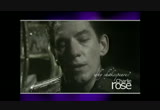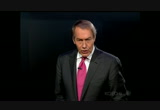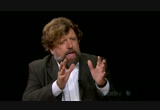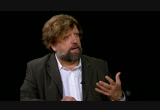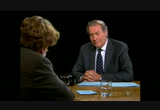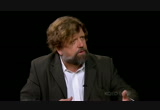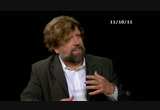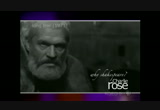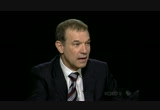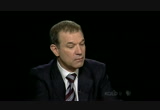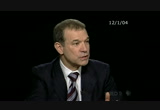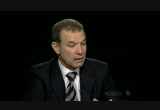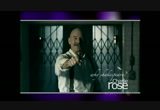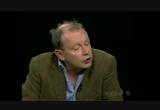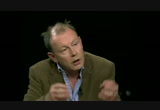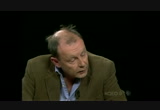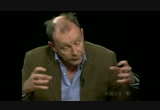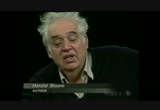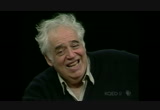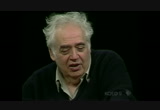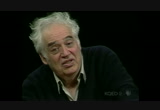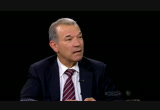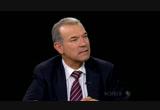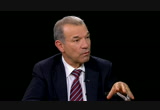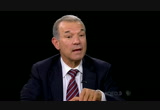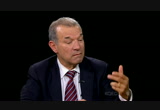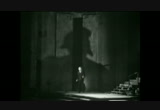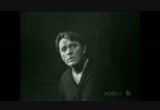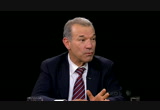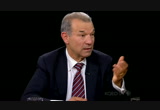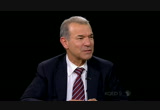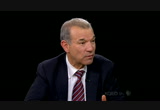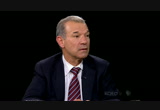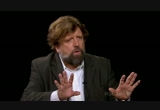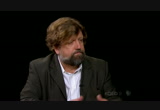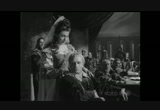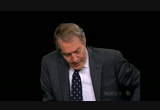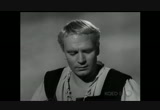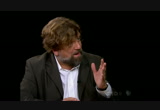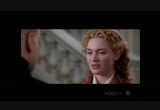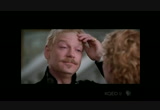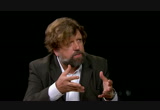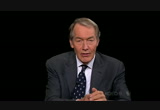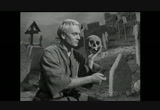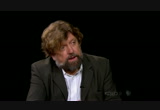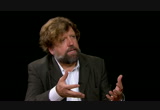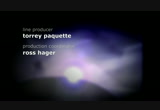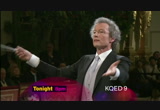tv Charlie Rose PBS January 1, 2013 12:00am-1:00am PST
12:01 am
>> from our studios in new york city, this is charlry captioning sponsored by rose communications from our studios in new york city, this is charlie rose. >> brief candle. life is but a walking shadow. a poor player of-- up on the stage. and then it hurt no more. it is a tale told by an idiot full of sound and furry.
12:02 am
signifying nothing. >> welcome to our charlry rose special edition, why shakespeare. we will hear from some of the most celebrated actors, directors and scholars working today am they'll help us better understand the complexity and the genius of william shakespeare. nearly 400 years after his death we're still left wondering how could one person write so beautifully, be so enduring and speak so eloquently to what it means to be human. shakespeare's great rival ben johnson wrote of him, he was not of an age, but for all time. laurence olivier once called him the nearest thing in incarnation to the eye of god. william shakespeare was born in 1564 in the small pro vention english town of statford upon avon. he moved to london in the late 1580s and in a remarkably short period of time became perhaps the greatest playwright of all time.
12:03 am
the names speak for themselves. hamleting king lear, othello, macbeth, romeo and juliet. these plays have been passed down through generations. they dazzle us with an appeal that transcends time and culture. tonight in our first episode with the charlry rose shakespeare series we start with conversations on the greatness and the enigma. we'll talk to the director of the new york public theatre, barbara gainse, director of the chicago shakespeare theatre and hear from some others from previous appearances on our program. they include shakespeare scholar steven greenblatt and harold bloom, also the director of the royal shakespeare company michael boyd. we then conclude our evening looking at hamlet. sir john ghoul good whose portrayals are considered some of the finest describe it as summing of the process of living, help us. with that, i would like to welcome you to the first
12:04 am
episode in our charlie rose shakespeare series we call why shakespeare? i hope you enjoy the conversations. >> good night, good night. parting is such sweet sorrow. but i shall say good night so it be morrow. >> rose: when somebody says to you who was shakespeare wa, do you say? >> he was the greatest writer in the history of the english language. he was the person who made the theatre democratic. and that's what made him the greatest writer. because you look at shix spear, you look at him in context. and what he did was write for an audience and he had to simultaneously please illiterate ground lings, please cambridge educated intellectuals, please the
12:05 am
aristocracy all at the same moment. because the two to compromise had brought together an audience in that theatre that was more diverse and mixed than any audience that the western world had seen really since the greeks, sow had to write plays that spoke to all of these people at the same time. and that's why from my point of view that audience called shakespeare's greatness into beingment because by writing for all of them, he was forced to expand the range of human experience in those plays. so they still touch us today. >> so we need to think about the audience when we think about the writing. >> absolutely. the beautiful example of this is we did a production of measure for measure that we told to the prisons earlier this fall. and there is one beautiful -- >> it was a fantastic production. and there was one moment where isabella has just been propositioned by anglo and told that she can save her brother's life who is going to be executed for forn case, if she will sleep with the judge who has condemned him. and he tells her this, and
12:06 am
then leaves her devastated on stage. and she turned out to this audience. and this was a woman's prison on the west side here in manhattan and begins the soliloquy, she says to whom should i complain. and a woman in the audience shouted out, the police. and then nicole who played isabella delivered the next line directly to that woman. she said, if i should complain, who would believe me. and the woman answered, no one, girl. and what you saw at that moment, that these soliloquys were actually call and response, written in dialogue with that audience. this is not some art under glass. this is live theatre at its finest. and you know it makes it an incredibly communal art form. >> rose: why have we not seen another shakespeare? >> my personal feeling is it's because the social conditions necessary to turn a great writer into the greatest writer have not recurred.
12:07 am
what happened for that couple of decades in elizabethan and early england was a society coming to consciousness of itself, mixing together the different classes, trying to forge a unity out of the different classes, and demanding that a writer write their story, reflect themselves back to them. and by doing that took a man who was always a great poet. who was one heck of a sonnet writer, and threw him into that calderon and that pressure turned him into a writer that carried the hopes and dreams and aspirations of england on his beck. you see in the great history plays like henry 5th, shakespeare is defining what it is to be english. he's helping the english create their own identity. he's wheting together the different nationalities of the welshman, the scotsman, the irishmen and giving them a sense of being british, of being more than just a collection of tribes. he's defining an english
12:08 am
attitude towards royalty. because of course what all of england is struggling with is we can no longer believe in the devine right of kings. our own history purchases that. if we can't believe in the devine right of kings wrarx gives the king legitimacy. that is the question shakespeare is answering. >> he constantly comes back to. >> exactly. and we haven't had a society-- . >> rose: or what the nature of a king's power. >> exactly. but also what gives him the right to utilize it. >> exactly. >> an in that little touch of harry in the night when king henry disguises himself and goes among his own soldiers and hears unvarnished and unsensored what they think of him with no ability to take retaliation or revenge, having to listen to them, you realize that's the thing that gives him the right to be king. if he actually takes on himself the burden of his subjects. he owes them. he is responsible to them. and that is what earns kingship. >> or he the day that sheds
12:09 am
his blood with me shall be my brother, be he there so vial this day shall gentle his condition. and gentle of an england now a bed, think themselves a cursed they were not here. and hold their manhood, while then he speaks, that fought with us, -- >> why was he a genius? >> he could, that's a huge question. i think he sort of had the greatest, one of the things is that he had the greatest range of human sympathy. that the world has ever known. he wouldn't judge you. he just would be you. it's the being, isn't it. >> would that be-- would a sin no for that be empathy or you specifically mean sympathy. >> i mean empathy/sympathy. i mean he couldn't help himself. even with a ruthless character like richard 3rd. murderer of children, right.
12:10 am
he made us feel something for him, you know, on the beatle of bosworth field. we started to hurt for him and we hate ourselves for it. because he couldn't help himself. >> how did he do that? >> he did that by making richard frightened. afraid of his own guilt. and you saw the cracks appearing in this, what we thought was just a brutal cold murderer. and now we see a tad of humanity. >> now do we see a bit of that in macbeth as well. >> we doment we see a lot of that, that is why it is so brilliant because here we see a cold blooded murderer, macbeth who starts thinking about murdering the king as soon as he become becomes-- instantaneously. he knows it's horrible. and yet he takes us with him on the psychological journey, oh my gosh, my moth weernt be happy with me. i don't know what my wife is going to say. but i've got to do it i can't stop myself. my managings are horrible. an we've all had horrible
12:11 am
managings, haven't we. >> we have indeed. >> so that's the problem. all of those criminals, all the people in his text are us. it's very hard to separate ourselves from any of shakespeare's characters. >> rose: so why do we think he was so wise? and observant? >> if i knew that. you know o i don't know what the answer to that is. all i know is the first folio his actors, the people that knew him wrote in the preface he was a against el and happy imitator of nature. and what he thought he wrote. for we have scarce received a blot on his papers. therefore read him again and again and therefore if you do not like him, are you in some man fess -- manifest danger am isn't that something? so i don't know. i think it-- how did mozart do it. how did beethoven. i mean i think there are mysteries here that we will never be able to solve and
12:12 am
that's fine with me. it's that it happened. that's what matter its. where does genius come from. i don't know. >> do we have to assume that shakespeare was fascinated by state, craft. >> state craft. >> the idea of state and relationships? >> wow. >> obviously the state and religion. >> but if you think about kings and queens and wars, they involve states. >> yes. >> it's not about the medical profession. and it's not about the legal profession per se. >> it's a brilliant question. and i'm not a skol or in this regard. but i will just say a little bit about it. is that of course shakespeare and elizabeth and the church of england and protestant and catholics, i mean when elizabeth was on the thrown, it was dangerous to be a catholic. what was shakespeare? you don't really know
12:13 am
because the times were raw. people go, went to jail and were beheaded because they were not what the queen or the king accepted. so they were very dangerous times. and so i think that he was, you know, it's interesting. he rarely wrote a churchman, the shakespeare, who you really liked. you look at done --. >> suggesting he didn't like churchmen. >> you could say that but then he writes cramner and he gives a beautiful speech about queen elizabeth at the end of henrey 8th that you have ever heard. let's just say he was, i think shakespeare wisely was skeptical of people in power. because he kind of thought it corrupted, i thinkment and you know, it's hard. what it-- okay, what is power? what do you think power is? >> seriously? it's an interesting question. what is power.
12:14 am
>> power-- well -- >> the ability to exercise your will. >> right. >> but often people use power don't exercise their will or doesn't turn out the way they want it to be so they, in fact, have failed at exercising their will. >> control of yourself is what you are suggesting which i think is a brilliant thought, actually. yes. but other people think power is money, or power is-- . >> rose: fame. >> fame, or power is all of that, right. >> it is you that stirs these daughter's hearts against their father. fool me not so much to bear it tamely. touch me with noble anger. and then no one's weapons, water drop stain a man's cheeks.
12:15 am
no. you unnatural hags! >> rose: on balance is he an interesting man to you? >> he is a fascinating man to me. >> rose: not in terms of what he wrote but just in terms of him. if you didn't know, if you didn't have the body of work would you look at this guy and say he is fascinating or would you say a rather conventional light. >> what is fascinating is we can't strip the work away and throw it away, on the contrary. what is fascinating is precisely that he had a -- >> a careful life but an interesting life, cautious but complicated one in relation to this absolutely astonishing body of work. it's the relationship between the two things that matters, this isn't the swashbuckling life that is fascinating in itself. sir walter raleigh had one of those. but shakespeare has a remarkable life, poignant and compelling life in relation to this astonishing thing.
12:16 am
>> since shakespeare without do you think has come close. >> close to the body of work, to the genius. >> well, i mean they are there are actually lots dns name three. >> milton, keats, blake, words words word, lots and lots. >> shakespeare is in a different category-- category, shakespeare is in the category that dante is in, that homer is in, that category that, what is fascinating is that this category, we assume somehow is only for gods but this is a human being. that is what is interesting. >> that is the point you want to make. >> this is a human being. elaborate because that is one of the points you want to make. >> this is not a god this was say leviving the breathing, human being. >> by the time this man was 20 years old, he 4 three children, he had no job, no vocation. he didn't know what to do, his father's blood business is falling part. he hadn't gone to oxford, the family had lost its money.
12:17 am
there was a religion that the family was associated with, was dangerous and percent kate-- purse cuted. there was not a future for him. they figured out to have not only a future but how to express this extraordinary thing he had inside him that is the remarkable story. >> rose: what de teach you about love. >> he teaches that you can write brilliantly about love without ever fully having it. >> what does that say? >> it says that he longed for something deeply, that he never fully acquired and never fully achieved in his life. >> rose: exception in his imagination. >> in his imagination and perhaps at certain delirious moments but never as far as we can tell, this is someone without has written the greatest body of love poetry in our language but go paragraph about relationships that cannot be sustained. >> okay, but dow just enjoy it and recognize it for its brilliance or do you say it is something that i assimilated and made me understand about?
12:18 am
>> we are -- >> more than relationships. >> it starts with pleasure. and maybe it ends with pleasure so that the pleasure is actually crucial if you take if all of this. of course beyond pleasure there is the effect it has on your life. when you try to sort out your life, you and i, when we try to figure out deeply what it is that we care about, in the real moments of our life, it turns out that this language, the language that shakespeare wrote gives us. >> will give you access to that. >> access to that. helps you access it. >> in your own. >> that's true of any great, that's true of shix spear but really of the whole range of great artists, that is what they are there for. >> explain that to me. >> if are you looking for something, let's imagine a situation of terrible loss. i havefully sons whom i adore and thanks god i never experienced the loss of a child the way shakespeare experienced.
12:19 am
it's shakespeare without gives you the language. why should a dog wrb -- >> the rat have life age no breath at all, the language to express these feelings that are otherwise potentially index pressable. this is what an artist does for us. >> rose: access our own feelings by, and giving you the capacity to comprehend. >> to comprehend and articulate. >> is this a dagger which i see before me? the handle to warm my hand? let me clutch thee. yet i see thee still. are thou not fatal, sensible to feeling as to cite. >> rose: you thought about
12:20 am
this a lot, i'm sure. why shakespeare. what makes shakespeare, why was shakespeare shakespeare? >> he was as i say he was born into a time of extraordinary crisis,ed passing of the middle ages of faith and the birth of a new age of skepticism, a mercantile age. he was born particularly in england at a time of brutal and very, very fast revolution of the sacking of all the chumps, the removal of the virgin mary, the destruction of all images, in strat stratford we have the church where shares spear is buried, holy trinity, you can still see the scars to take away all those graph enimages.
12:21 am
and he was himself from a catholic background. and he managed to deal with crisis, and to the get into jail thomas kidd, ben johnson, most of his contemporaries got into terrible trouble, christopher marlow was-- how did slax spear survive that is one of the things that makes shakespeare shakespeare, he survived. he, and one of the main ways that he both survived and became so good was that he unlike say christopher marlow or ben johnson without couldn't keep the author out of it, couldn't keep the editorial out of their play, shakespeare hid the editorial if dialogue. and the true lies like out of the "da vinci code", somewhere in between two characters. and the play happened there
12:22 am
mysteriously but with clarity and with great power. and his ability to dramafy the split, whether it's the split between being a country boy in stratford and the court in london, whether it's the split between catholic or protestant, whether it's the split as i say between the age of faith and the age of rationalism and mercantilism, where it is the split between the old anglo sackson and the latin language of power, he sets them up, gets them talking to each other, and he never judges either side. if there's a judge. us because if he did, people would know what his ed torial was and they could silence him. the editorial, if it's there, is so wrapped up in the nature of his writing, that it becomes good art,
12:23 am
indivisible from its form. whereas a contemporary ben johnson wrote beautifully, but it was an essay. christopher marlow wrote stunningly, but it was a series of monologues. and jz are brilliant, highly metrical, rhyming, relevant, passionate writers, they're monologues. they're not and they're editorial. they're not capable in the way that shakespeare was of creating, it's not a hologram t is something much more profound than that. it's something that actually almost approaches the condition of life, in between the opposites of shakespeare's existence, both as a person and as an artist. i would say it is that duality in shakespeare that is the fundamental dna of his greatness.
12:24 am
>> neither a borrower nor a lender be, for loan often loses of itself and friend and borrowing dulls the edge of husbandry. it is above all, to thine own self be true and it must follow as the night to day, thou cannot then be follow to any man. >> rose: how do you explain the shakespeare. >> the best possible question to is at the beginning of the book is i can't explain him, after all these decades of teaching him. i think the proper stance towards him is awe. it is astonishing that it could have happened. you request trace any other writer to some source. you can talk about if you will, societal context. you can talk about history. but shakespeare transcends any context that you try to find for him. the power of creation in
12:25 am
him. i think i can even focus it, there is an excess in him. there is an overflowing not just of meaning but of being. it's a sheer newness which comes flowing out of him for which we have no precedent and in a deep sense he has had no successor despite the fact he has been such an immense influence on all who came afterwards. he is i suppose the largest single miracle i know of not just in the history of the human arts but in the history of the human consciousness. >> i suppose that if you are a religious believer then you might want to talk about moses and jesus and mohammed. but as a secular figure, this is, has astonishing a phenomenon as any of the great religious founders have been. this is indeed the secular scripture, the complete
12:26 am
plays of shakespeare or complete works of shakespeare. i think i remarked somewhere in that book in a kind of wonder myself that hamlet has become the intellectual's christ. and even though in the past i have been much condemned for saying that the western worship of god is the worship in the end of three literary characters, yaweh, the gospel of marks original, jesus and mohammed's allah, i think only shakespeare competes in his nine or ten strongest characters with those three great literary characters. which of course, you know, is a somewhat blasphemous thing to say. but at one point in the book i only half jokingly since i am a dinosaur now in academic terms, refer to myself as-- i think that say
12:27 am
perfectly good description. i see-- it seems to me a perfectly valid self-designation. but no, i cannot explain shakespeare. i can appreciate shakespeare. i can hope to help others to appreciate him more. i can hope to teach others to see that we must not condescending to him. that he is always out ahead of us and he always knows more than we do. he has always more than anticipated our latest developments. you can push any idea you want to into shix spear and it will not necessarily light up the play but the play will light up the idea. the power of minds, the power of consciousness, the power of sheer-- in him is beyond parallel. and if it's beyond parallel then in some sense it's beyond explanation. >> now is the witching time
12:28 am
of night when churchyards yawn and hell itself breathes out contagion to this world. now could i drink hot blood and do such bitter business as the day would quake to look on. >> now to my moth other. >> oh, lose not thy nature, let not ever the soul of nevero ent they are firm bossom. let me be cruel, not unnatural. >> i will speak daggers to her but use none. my tongue and soul in this be hypocrite. how in my words so ever he be shamed to give them-- never my soul-- . >> rose: let me begin with hamlet and ask what's the context, the historical context? >> the historical context is that it was a play written 1599 or 1600. by shakespeare. there had been a hamlet play
12:29 am
that had been a success. shakespeare often uses other people's materials, is sensitive to what is working in the theatre. that had been a play, possibly even two of them before that, based on very old story. a story that had been hold multiple times that goes back to i 12th century danish chronicle. and shakespeare takes this story which is a revenge story, a bloody mystery and he turns it into arguably the greatest single tragedy ever written and certainly a life changing work for him. his career really pivots around-- . >> rose: what happened to his career. >> his career was also already magnificent before then. >> rose: this unloaded, he had unleashed a wol series of -- >> it initiated an unbelievable outpouring of work including plays like othello and pac beth and king lear. it also unleashed something in shakespeare in itself. he uses more words in hamlet,
12:30 am
including more words that had never appeared in print before. they muses have been in the at least to some extent in the culture. then any one has ever released in a single work so it was written in a whole new language for him. absolutely extraordinary outpouring of new relationship to his own language, to what it is to, what you can address an audience with. and it changed everything. >> rose: there are parts of this that are of this that might have unleashed this in him? was there any part of the subject matter that might have had some catharsis for him? >> speculative we could say that it can't be entirely an accident that his son's name was hamlet, which is not only very close to hamlet, obviously but also interchangeable with the record with the name hamlet sometimes spelled either
12:31 am
way. his son had died in 1596 at 11 years old. and then his father was also depending on when the play was first drafted dead or dying. and so there probably are in his own immediate life things that are disturbing him, that he wants to come to terms with. >> and are where do you put it in the context of elizabethian world? >> what happens, at least one of the pieces that is fascinating for me, this is a play about as shakespeare tells it, about a ghost. a ghost coming to his son and demanding revenge. that the peculiar thing about that act is that from about 50 years before shakespeare wrote this play, his culture had changed the rules governing the relationship between the living and the dead. protestantism said there are no ghosts, there are only $ons that come from the other world.
12:32 am
ghosts are a remnant of the superstition of perg tore, the idea of perg tore, catholic superstition forbidden and they changed the rules and say you can no longer pray with the dead or for the dead. you can't pray for the remission of pain. and in fact, the very simple change in the burial service in the years before shakespeare writes the play. they change the words from we commit thee to the earth, ashes to ashes, dust to dust, to we commit him or her to the earth. and in other words, you are no longer speaking to a thee, to an i-thou relationship to a person. because the person no longer exists, is dead. and it's just someone who is now in the earth. and that change should make it in effect impossible for a ghost to come back, to demand revenge unless that ghost is not a ghost at all but a demon. now what's amaze being
12:33 am
shakespeare's play of course is that that is precisely the question that hamlet asks himself. what is this? am i encountering the demon who is trying to lead me astray. can i catch this ghost. can i find out whether it actually is a ghost, that is to say somehow a returner from the other world, the other world which could only be this now forbidden world of a middle state between heaven and hell. >> rose: who do you think the ghost represents? >> the ghost is, what the ghost is says your father's spirit, hamlet, but what it means to be the father spirit is tied up with centrally in the play with what the ghost tells hamlet he wants hamlet to do. remember me. >> so the ghost says revenge, but the ghost repeats again and again remember me. so in answer to your
12:34 am
question i would say the ghost is first and foremost about remembrance of the dead. what it is, what kind of life the dead have, not simply-- that's why these religious issues though they are fascinating as part of the surrounding of the play, you don't need to know this to encounter this play and to feel it in your bones. all you need to know is something about what it is to remember. what it is to remember, especially here, people who are gone. and what kind of negotiation we have with the people who are gone. what claims do they have to make on us. >> all right, take a look at this. we will see a scene now, a clip from richard burton's hamlet in the encounter. >> i am my father's-- you for a certain term will walk the night and in the day confined to --
12:35 am
12:36 am
sleep to his revenge. instead there are five acts between that moment in which he thinks he's going to act instantly, and what actually we see which is a brooding, meditating, for tured consciousness that only ends in the chaos and mayhem of the scene at the end of accidental, crazy, activity and the murder and mayhem of the danish court. >> rose: do you read any freudian interpretations of this? >> there are certainly is a deep problem of memory, not simply memory of the father but the disturbance of the memory of the mother. the living mother in her relationship with the dead father. and now in the relationship with the uncle. you don't need freud to tell you that that is a does tushance. because hamlet tells it you it's a disturbance. don't let him put his reachy fingers on youment don't plant reachy kisses on your lips, he says, about-- he says to his mother about the
12:37 am
uncle. he is obsessed with the mother's sexual life. and as i say, this is in the play itself this is not an imposition on the play. >> rose: a couple, why does he get, i mean who is he and why does he get the great line? >> the great line being. >> this above thyie to fh-- thine own self be true. >> it's not clear. you can goto ways with this, and play it two ways, one is he is a mattering old too fool, if you play it that way, you emphasize the fact that most of these chestnuts may be foremost among them, are good things to say but they don't correspond to actual living experience let alone the living experience of hamlet who doesn't even know what his true self is, who can't figure out what his relationship is to himself. the whole play is about the fact that it's impossible to put these things together. so i tejd to be on that side of things.
12:38 am
but you can also play it age i think maybe shakespeare's con temp lears have found it interesting as a set of perfectly good advice though it may not be good advice that you live by. >> when you teach shakespeare at harvard, what do you want your students to come away with? >> i want them first an foremost tos. >> experience the play as fully and pleasureably as they k not something as a nug tote carry away but to open themselves to the play and let it. >> work on them. let it speak to them in the deep and powerful way it can. first an foremost for me really is not a lesson. >> it's about what it is first of all to be a human being in the world, to suffer to wonder who you are when are you in the case of my students and in the case of hamlet, when you are at
12:39 am
the early stage of your life when are you trying to sort out who you are and what your destiny will be, what your vocation is, it familiar usly speaks to people, of exactly the age of many of my students. >> it speaks it to them in terms of how the pathway to finding that out? >> well, the pathway to finding it out and the difficulty of finding it out what a struggle it s what a complex act it is to try to know who you are. to try to fulfill the expectations of your parents. to make your way in the world. to understand that you are not simply in the world to make it what you want but you are given a set of in effect commands and you can ask questions about them. and question them. but you can't escape them. you have to struggle with them. and see where they lead you. and hamlet is of course a tragic case of this. or cursed spite that ever a was born. that experience over the
12:40 am
centuries has spoken to generations and generations of not just students but to readers and audiences of all ages. >> it really is i think the deepest and hardest question is to be able to find that thing that you, that is the perfect marriage, you know, of your dreams and your competence and your passion. >> what a piece of work is a man, he says. >> what a piece of work is a man am but for him it has fallen apart. and the play of course is about someone who, of immense gifts who precisely can to the do what you have just described and find the core of himself and find the way through but who winds up
12:41 am
dead. tell me then for the benefit of me and this audience the story of happy let. why did this play in terms of the narrative. >> this, what you have, i believe that the essential things that's made hamlet last all these years is a young man who has feelings of alienation, of despair, of grief, of anger, of cynicism, that he does not know how to place in the world. he is seeking for how to commit an action. how to take his place in the world. and he's living in a world in which to his eye there is no viable, ethical, awe then-- authentic way to participate in the worldment and he slams up against that for five acts.
12:42 am
and that experience, i think, is so common to us that we have been able to read it over the centuries through a million different historical lenses, theoretical lensesment. >> nd he is tragic because he doesn't know how to do that? or is he tragic for some bigger and deeper rfern, as a tragic figure. >> tragedy is a tough term. and i wouldn't want to try and straight jacket poor hamlet too much by aristotle's categories. >> right. >> but what i would say is that the tragedy is his inability to find a place to be effective in the world. and because he can't find that, we end up essentially with denmark destroy by the end of this play. the country he loves -- >> he cannot find a place to say. >> he cannot find grace. >> let's look at some scenes. the first is claudius and ger trude for hamlet to stay in denmark. here it is. >> good hamlet, cut thy
12:43 am
collar off and let thine eye look as a friend on denmark. do not forever with thy lower lid seek they final father in the dust. all that lives must die. passing through nature to eternity. >> i, madame, it is common. >> if it be, why is he so particular with thee. >> nay, it is, i know not seems. 'tis not alone my cloak, good mother nor customary suits of solemn black, together with all forms, molds, shows of grief that can denote-- these indeed seem for they are actions that a man might play. that i have that within which passette show these but the trappings and the
12:44 am
suits of woe. >> rose: . >> it's also in a way that little speech of hamlets defines who he is. i know not seems, these are actions that a man might play but i have that within which passette show. and it is sort of a core idea of who hamlet is. he has an interior being which he cannot express externally. he has a sense of authenticity of emotion, of feeling, of spiritual state that he doesn't know how to put into action. >> the next scene we're going to show is obviously to be or not to be soliloquy. take a look at this. >> to be or not to be. that is the question whether
12:45 am
it is nobler in the mind to suffer the slings and arrows of our greatest fortune, or to take arms against a sea of trouble os and by opposing, and then-- to die. to sleep no more. and by asleep to-- say we end the heartache and the thousand natural shocks tha that-- as a consumician about yet to be wished, to die, to sleep, to sleep. >> you can literally see the camera trying to go into
12:46 am
olivier's head. the choice of the voice over is so radical for the time. but it's also actually a powerful response to the film as medium. the soliloquy is interactive and dialogic with the audience, the film isn't. so the voice-over gives us that interiority of hamlet in a way that obviously olivier felt incredibly fresh and new at the time. >> rose: is hamlet, is he sympathetic as a character? >> he is both sympathetic and frustrating. one of my great teachers said to me when i asked him once if a character was likable, he said our connection to characters is an id connection. it's not a superego connection. and what he meant by that, it was brilliant a that we don't connect to whether characters are ple sand-- pleasant. we connect them if we understand what they want, if we understand what they feel f we connect to them on a vit ral level it doesn't
12:47 am
mat ferr they are pleasant or if we like them. and for me and for millions of other people, hamlet is a character whose incredibly identifiable with, we find ourselve notice him. so whether he we like him or not, because actually he's a whining pet lent, nasty little boy. >> rose: right. >> but we understand him. so we connect. >> rose: i got you. all right, the next let me look at the next clip. is hamlet lashes out for her betrayal. >> i did love you once. >> indeed, my lord. you made me believe. >> you should not have believed me. for you cannot so inoculate your old stock but we can relish, i love you not. >> i was pore definite deceived. >> why would,000 be a breeder of sinners. i am myself indifferent, honest, but coy accuse me of such things i had better my mother not informed me.
12:48 am
12:49 am
i -- thou shall the not escape, go, farewell, because if thow need marry, marry a fool. the wise man-- what monster you make of them. go! go! and quickly too, farewell. >> rose: so what is going on between the two of them? >> hamlet and o theoia. >> you can look at this in two almost contradictory ways. one is that hamlet is expressing towards othielia all of his disgust towards women. and that disgust towards women's behavior and women's sexuality has been aroused business his mother's behavior. and he is projecting it on her. and slathering her with the disdain he feels for all women kind. >> rose: right. >> at the same time, the
12:50 am
text is absolutely clear that he recognizes that she is being used as a pawnment and she has agreed to stage this scene with him and to be observed by polonius and claudius, to try to find out the secret of hamlet. so at that point the betrayal that he feels by her is not just a generalized betrayal by the entire sex. it's also a specific portrayal by his girlfriend. and the fact that shakespeare gives you both of those possibilities to play with is part of what makes him the greatest playwright. >> take a look. this is scene five, act five, scene one, the graveyard scene where hamlet is holding the skull. >> alas, i knew him horacio. the fellow of infinite jest, of most excellent-- he hatt
12:51 am
borne me on his back a thousand times. but now in my imagination it is, my george rises. here hung those lips that i have kids, i know not how often. where be your jibes now? your songs, your gambles. your flashes of meriment. not one now to muck your own grinning. quite chock fallen. now get you to my lady's chamber. tell her, let her paint an inch thick to this favor she must come. make her laugh at that. >> fantastic. just think, at the end of this play, no matter how
12:52 am
much shakespeare cut it or anybody cuts it you've been in the theatre for hours. you've watched all of it this action. you have watched sword fights and murders and hamlet flee as broad and plots and then everything slows. and-- the graveyard and hamlet looking at the skull of a character that he has never even mentioned before and meditating on mortality it is an extraordinarily bold thing for a writer to don't and what i think takes us on handle let's journey understanding that whether he actually sees his own death coming or not, he's understanding something about death. he did fear death, or not. >> he hamlet? >> yeah. >> he certainly says he's afraid of death. that's the content of to be or not to be. you know, the born undiscovered country whose born no travel returns. but by the end if there is
12:53 am
providence in the fall of a sparrow, readiness did -- by the end he's come to accept something about that. >> remind us what his journey was from the beginning scene we saw to where he ends up. what is-- is it approaching madness? >> is hamlet feigning madness in order to allay the suspicions of the king? he is actually going mad? shakespeare doesn't give us definitive instructions on which of those it is and again that's part of the greatness. and again like most human beings he's probably not entirely conscious of what he is doing, he, however, is in this mad-like state in the court until finally confronting his mother with what he views as her crimes and her complicity in his father's death. he kills polonius thinking he is killing his stepfather
12:54 am
and dlaud yens exiles him, sends him off to england, gives instructions to his two friends to pass to the king of england that hamlet is to be murdered. ham let uncovers these instruction and instead sends the two off to be murdered, comes back to england, arrives first in this graveyard. and then throws himself on the grave and finally heads towards that final fat dual rses thank you for coming. captioning sponsored by rose communications captioned by media access group at wgbh access.wgbh.org
12:59 am
captioning sponsored by wpbt >> this is n.b.r. >> susie: good evening everyone, and happy new year. i'm susie gharib. with just hours to go a deal emerges to avert the fiscal cliff, but can congress pass the measure in time? president obama says they can, we've got the latest from washington, on what could happen before the new year's day deadline. and wall street ends the year with a rally and healthy gains. s&p strategist sam stovall joins us with where he sees stocks headed in 2013. that and more tonight on "n.b.r."! washington lawmakers are getting close to a fiscal cliff deal, but they might not get it done before the midnight deadline tonight. the senate could vote in time, but it's possible the house will wait until tuesday. that means the u.s. could go over the fiscal cliff.
235 Views
IN COLLECTIONS
KQED (PBS) Television Archive
Television Archive  Television Archive News Search Service
Television Archive News Search Service  The Chin Grimes TV News Archive
The Chin Grimes TV News Archive 
Uploaded by TV Archive on

 Live Music Archive
Live Music Archive Librivox Free Audio
Librivox Free Audio Metropolitan Museum
Metropolitan Museum Cleveland Museum of Art
Cleveland Museum of Art Internet Arcade
Internet Arcade Console Living Room
Console Living Room Books to Borrow
Books to Borrow Open Library
Open Library TV News
TV News Understanding 9/11
Understanding 9/11

